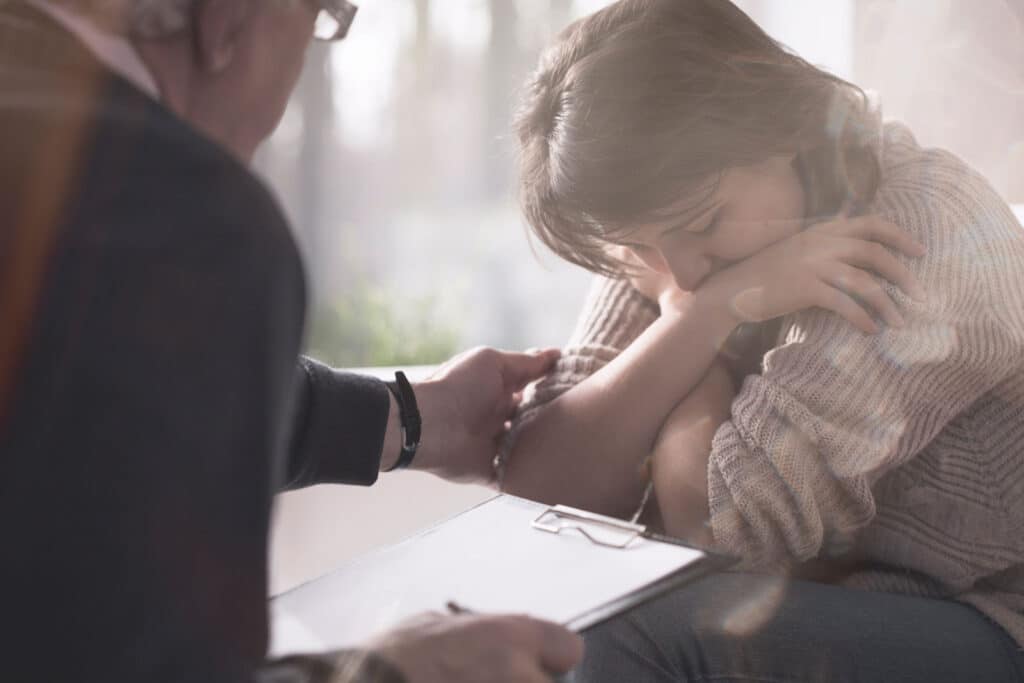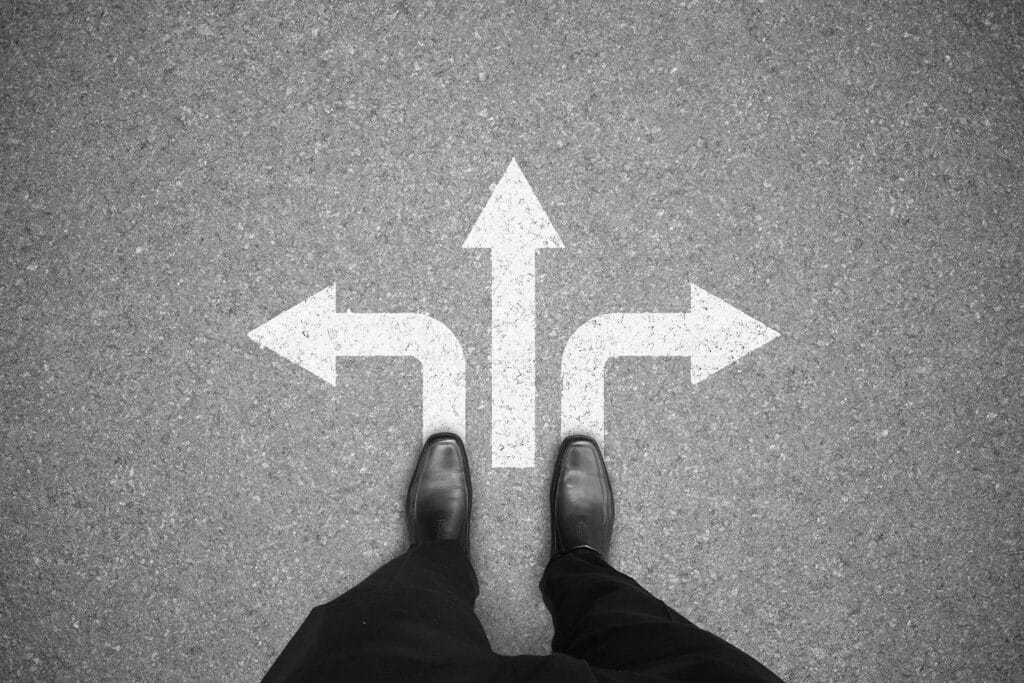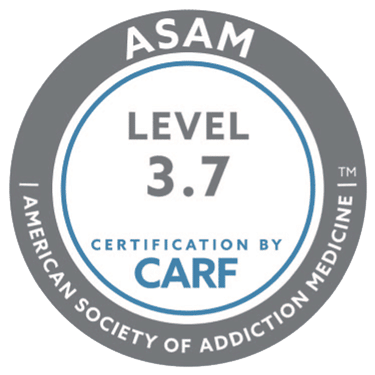A Comprehensive Guide to Treatment Facilities and Services
Are you ready to create a new life for yourself, free of substance use? Or maybe you’re a relative or friend of an addicted person, desperately wanting to help them.
In either case, drug rehab centers specialize in leading people to recovery, equipped with the skills to keep them sober. Here’s an overview of what’s available to you in New York.
WHY DRUG REHAB CENTERS ARE A LIFELINE TO SOBRIETY
Drug rehab centers have structured therapeutic programs, empowering those battling addiction to conquer it. In therapy, counselors help you identify the root causes of substance use. Then, they teach skills for handling problems, building your strength, self-worth, and confidence. Meanwhile, you develop new, healthy habits, replacing harmful ones.

When you enter a facility, the staff designs a personalized treatment plan. It incorporates your treatment goals, the things you want to change and achieve. The plan also states how the team will help you reach your objectives. The ultimate treatment goal is lifelong sobriety. A rehab program can make that your reality!
HOW TREATMENT PROGRAMS PAVE THE WAY TO RECOVERY
Drug rehab facilities provide several types of therapy, each varying by approach and focus. Still, all therapies promote sound thinking and emotional stability. Over time, you learn how to make decisions with great outcomes. As your habits and behaviors improve, life becomes more manageable, productive, and fulfilling.
VITAL SUPPORT FOR INDIVIDUALS AND FAMILIES
Treatment includes life-changing individual and family counseling.
You’ll have regular sessions with a caring counselor, listening attentively to you without judgment. Everything you say is confidential, solely between you and your counselor. In therapy, you’ll trace your addiction triggers and learn how to neutralize them.
In group therapy, clients share their struggles, giving empathy and encouragement to each other. Peer and counselor support are essential elements of treatment and recovery.
Support is also extended to family members. With a counselor, they can discuss how their loved one’s addiction affects them. Family therapy can settle misunderstandings, improve communication, and resolve conflicts between family members.
TYPES OF DRUG REHAB CENTERS IN NEW YORK
Many NY rehab facilities offer inpatient and outpatient services. With both types, the treatment professionals are licensed mental health counselors. Each one is committed to providing high-quality care to its clients.

INPATIENT REHAB FACILITIES
Inpatient treatment is residential, given to those living within the facility. Care is round-the-clock, shielding clients from the distractions of daily life. Inpatient care prioritizes detox, reducing cravings and withdrawal from substance use. Generally, treatment can last from 30 days to six months.
Benefits of Inpatient Care
A residential program is crucial if you have a severe addiction or suicidal thoughts. It entails constant supervision, medical support, and help with basic self-care. Since the inpatient setting is temptation-free, there’s no risk of relapse while in treatment.
All the activities are scheduled, designed to promote your healing and recovery. In this community atmosphere, you’ll develop strong friendships. Moreover, you can receive medical care for a co-occurring disorder, such as depression, anxiety, or an eating disorder.
Some residential programs include alternative therapies that foster your overall well-being. Examples are acupuncture, art therapy, yoga, and massage therapy.
Due to these comprehensive services, inpatient rehab has the highest success rate for long-term sobriety.
Drawbacks of Inpatient Rehab
Many programs are costly and only partially covered by insurance. Since clients can’t leave the facility, it’s impractical for parents and those with family obligations.

OUTPATIENT REHAB CENTERS
Outpatient programs are non-residential, enabling clients to receive therapy while conducting their daily responsibilities. Examples are working, attending school, or raising kids. A client may live at home or in a sober living home connected with the drug rehab center.
In outpatient care, clients strengthen their mental and emotional stability to prevent relapse. Treatment can run from three months to a year or more.
Benefits of Non-Residential Care
You can receive individual, family, and group therapy while living at home. During treatment, you’ll apply the coping skills you learn to regular life. Meanwhile, counselors will address any new issues that arise in the quest to stay sober.
In outpatient care, you have free access to friends and family members. Additionally, treatment is more affordable than inpatient care and usually covered by insurance.
Drawbacks of Outpatient Rehab
You won’t have constant medical support to ease withdrawal symptoms and cravings. Meanwhile, you’ll have to fend off addiction triggers and bad influences. Since you can access drugs and alcohol, you need more strength and self-discipline than with inpatient care.

SPECIALIZED TREATMENT CENTERS
1. Luxury Rehabs
Most luxury rehab centers have picturesque, secluded settings, like that of a beach or mountain resort. Often, they attract politicians, celebrities, and those in the public eye needing high security. Such facilities offer private accommodations and upscale amenities.
Additionally, luxury rehabs provide recreation and exercise, such as swimming and onsite gyms. Meanwhile, clients can use electronics. Treatments include detoxification and managing co-occurring disorders.
2. Executive Rehabs
Here, CEOs and other business professionals can keep working while pursuing sobriety. For instance, they can use phones, computers, and conference rooms. They can also travel if their jobs require it. Typically, amenities are resort-like, similar to luxury rehabs.
In therapy, clients learn how to balance work and family life, reducing the pressure that spawns substance use.
3. Faith-based rehabs
Christian addiction treatment incorporates Christian teachings, values, and spiritual guidance. Therapies affirm one’s connection to a higher power.
Meetings include worship, scripture readings, prayer, and spiritual discussions. Facilities also have quiet alcoves for meditation and personal prayer. In a Christian rehab center, clients support each other through their common faith.
4. Gender-Specific Rehabs
Men and women differ in the issues that trigger addiction, the substances used, and how their brains respond. Gender-specific rehabs factor these variables into therapy, treating either women or men. Therapy also addresses their particular roles in life, such as motherhood or fatherhood.
Women who’ve suffered physical, mental, or verbal abuse from a man feel safer in the company of other women. Programs targeting men help them open up to their peers, voice their emotions, and assess their behaviors objectively.
5. Holistic Rehabs
In a holistic rehab, the treatments are non-medical, aimed at relieving withdrawal symptoms and promoting overall well-being. They also focus on sound eating habits and nutrition.
Examples of holistic therapies are:
- herbal medicines
- acupuncture
- massage therapy
- biofeedback
- guided meditation
- yoga
- tai chi
Holistic rehabs with the highest success rates have both natural and medical services, particularly regarding detox.
SPECIFIC TREATMENT APPROACHES AND THERAPIES

EVIDENCE-BASED TREATMENTS
1. Cognitive Behavioral Therapy (CBT)
A CBT therapist focuses on the current events of your life, rather than what triggered substance use. You’ll learn to replace defeating thoughts with uplifting ones. You’ll also gain skills to soothe your mind, reframe your perspective, and handle difficult situations. Moreover, your therapist will rouse confidence in your abilities.
2. Dialectical Behavior Therapy (DBT)
If you’re often overwhelmed by strong emotions, your treatment plan may include DBT. This coaching therapy helps you diffuse intense feelings, such as rage, panic, and ballistic frustration.
A key practice is staying in the present moment, not projecting too far ahead. DBT will teach you how to:
- accept prevailing situations
- face change without fear
- swap unpleasant thoughts for upbeat ones
- neutralize your feelings
- tolerate stress
- communicate calmly and clearly
3. Motivational Interviewing (MI)
Some clients want to quit drugs or alcohol, but they lack determination. They may also be afraid to stop using for various reasons. Or, they believe they’re too weak to stay sober. In these cases, a therapist may use Motivational Interviewing (MI).
This type of therapy empowers clients to overthrow their fears and uncertainty. To do this, clients create exciting treatment goals, propelling them forward. Meanwhile, they envision the rewards of sobriety, free of chemical dependency.

ALTERNATIVE THERAPIES
1. Art Therapy
When you create artwork, it reveals hidden emotions, releases tension, and lifts your mood. In art therapy, you might draw, paint, sculpt, sketch, or take pictures. You can also color, journal, or make a collage. Creating a beautiful work of art will raise your self-esteem. If you don’t think you’re artistic, you can doodle!
After completing your artwork, you’ll interpret its meaning. Then, your therapist will offer their insights, helping you understand it further.
2. Music Therapy
A counselor may use music to channel your creative energies, either in individual or group therapy. Through music, you can express your feelings and get a break from withdrawal symptoms.
During individual therapy, you might listen to music, play an instrument, compose a melody, or write lyrics. In a group setting, you can sing popular songs. Or if you’re a musician, you can present a concert, performing for the group. Playing musical games is especially fun. Young people may enjoy rapping together.
Music therapy will help you relax, communicate better with others, and feel good.
3. Equine Therapy
This animal-assisted therapy involves working with a horse, an expert handler, and a therapist. In equine therapy, you’ll care for the horse, grooming, feeding, harnessing, and leading your horse around. At some rehab facilities, clients also ride the steeds. By being responsible for a particular horse, you’ll feel valued and needed, boosting your self-worth.
Horses are sensitive and intelligent. Moreover, a horse will mirror your thoughts and feelings. So, if you’re calm and gentle, the animal will be, too. By bonding with a horse, you’ll enjoy heightened self-awareness, improving your behaviors. Meanwhile, you’ll get exercise, energizing you and building endurance.
4. Yoga
With yoga, you perform certain postures that stretch or strengthen your muscles and joints. Paced breathing accompanies each pose, melting muscle tension.
Meanwhile, the moves dissolve stress hormones while producing calming ones. Moreover, yoga soothes the parts of your brain affected by drugs and alcohol, reducing cravings for them. Thus, you acquire more self-control. Yoga can also alleviate pain, improve balance, and help you sleep better.
5. Meditation
In meditation, you focus on a grounding object, such as your breath or a particular word. When distracting thoughts arise, bring your attention back to the focus of your meditation. Through this practice, you can distance yourself from disturbing thoughts and feelings. Thus, they affect and control you less, helping you make beneficial choices.
Initially, it helps to do guided meditation with a facilitator or a recording. A narrator will lead you through a peaceful visualization. When your mind strays, you redirect it to the speaker’s comforting voice.
Meditation facilitates rehab by relieving anxiety, depression, and other addiction triggers. Meditation can also prevent insomnia and impulsive decisions.

MEDICATION-ASSISTED TREATMENT (MAT)
MAT supplements therapy with medications that break the dependence on opioids, such as those in prescription pain relievers and heroin. MAT is also used for alcohol addiction.
Certain FDA-approved medications promote recovery by:
- stabilizing brain chemistry
- blocking the “high” that alcohol and opioids produce
- relieving cravings and withdrawal symptoms
- restoring body systems to normal function
Medications used to treat alcoholism are naltrexone, acamprosate, and disulfiram. Drugs that aid recovery from opioid addiction are methadone, buprenorphine, and naltrexone.
Warning – If you have kids, always keep prescribed medications in a locked cabinet. If children ingest these drugs accidentally, they can be fatal.
NY DRUG REHAB CENTER LICENSING REQUIREMENTS
By law, a rehab facility must have a license to operate in a certain state. To gain licensure, a facility submits its planned policies and procedures to a licensing board, detailing how it will treat addiction and benefit clients.
In New York, the licensing board is the Office of Addiction Services and Supports (OASAS). This agency requires a drug rehab center to comply with state and federal laws regarding prescribed drugs and client confidentiality. Moreover, OASAS keeps rehab centers current on the best practices in addiction treatment and new legal issues.
FACILITY ACCREDITATION
When considering a particular drug rehab facility, find out whether it’s accredited. If so, the center meets the highest standards of addiction treatment and client care.
Facilities seeking this mark of excellence must apply to an accrediting agency. Then, the center undergoes a series of evaluations by agency inspectors. They assess its:
- therapy programs
- medication treatments
- safety measures
- operating policies
- methods of safeguarding client health information
- business records
- staff credentials
- client care
- physical site
A facility that passes the inspections gains accreditation. Then, the rehab center can mention this achievement online and in its marketing materials. Now, you can know the facility is trustworthy. Moreover, some insurance companies will only pay for treatment from accredited rehab centers.
To maintain this standing, the rehab center must submit to regular inspections. This ensures that it uses the latest research-based therapies.
The two accrediting agencies for drug rehab centers are the Joint Commission and CARF International.

HOW TO CHOOSE THE RIGHT DRUG REHAB CENTER IN NEW YORK
First, decide whether you or an addicted loved one need inpatient or outpatient care. Then, consider whether a specialized treatment center would be optimal, such as a faith-based rehab. If you prefer a local facility, that’s another factor.
Will you pay for treatment with insurance? If so, you’ll want a drug rehab center that accepts your healthcare plan. If you don’t have insurance, some facilities provide payment assistance, such as sliding-scale fees based on your income.
A few rehab centers offer scholarships. So, when you call a particular facility, ask if it does. Also, inquire about its program success rate and outcomes.
HOW TO FIND A DRUG REHAB FACILITY IN NEW YORK
One option is asking your primary care doctor for the name of a reputable facility. Other sources of referrals are churches, social workers, and addiction support groups.
SAMHSA, The Substance Abuse and Mental Health Services Administration, has an online rehab locator. To find a treatment center near you, use this search tool, inputting your address, city, and zip code.
OASAS also has a drug rehab locator tool, which you can access here.
RECREATE BEHAVIORAL HEALTH NETWORK
Our rehab program, Recreate Behavioral Health Network, is licensed and accredited. We have a remarkable success rate with clients who enjoy long-term sobriety. Many of our counselors are in recovery, having been in your shoes. Thus, they’re well-equipped to walk with you through rehab.
Our New York facility is on Long Island. We also have drug rehab centers in New Jersey and Florida. Call us any time of the day or night.
TAKE ACTION NOW

You can regain control of your mind, emotions, and life! There’s so much available to help you, giving you the courage and determination to move forward.
When you enter a drug rehab program, the staff will customize your treatment plan with the optimal therapies. Meanwhile, they’ll prioritize keeping you comfortable. You’ll gain empowering skills to manage your thoughts, feelings, and the challenges you face in life.
At Recreate Behavioral Health Network, our staff is eager to meet you. Call us today to connect with a caring professional.
The time to act is now. Get free from addiction once and for all. You can do it!







